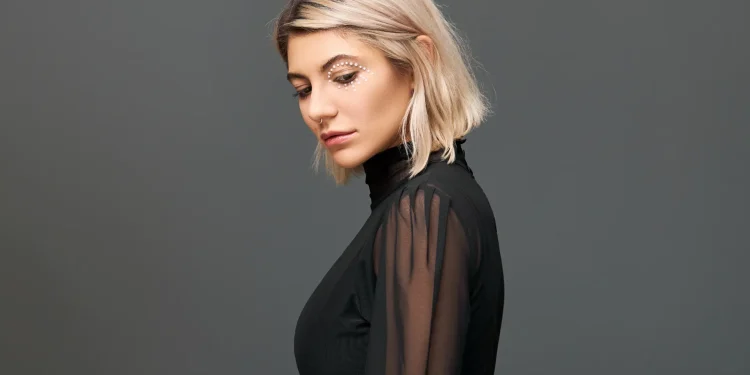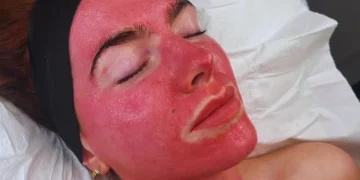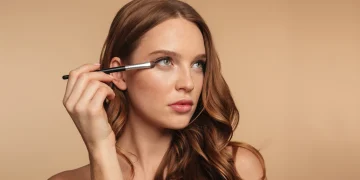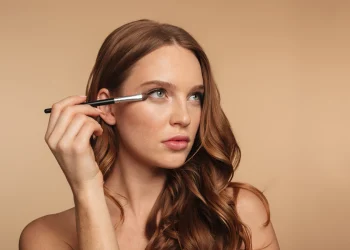Last updated: April 5, 2025
A Personal Journey Through Hair Loss
I’ll never forget the day I stood in front of my mirror, holding a pair of kitchen scissors with trembling hands.
My long, thick hair, the same hair I had once proudly flipped over my shoulder was now limp, shedding, and constantly tangled.
Every brushstroke ended in heartbreak. I was losing it. Emotionally and physically.
In a moment that felt half like a breakdown and half like a breakthrough, I cut it all off.
What followed was a surprising journey of rediscovery, healing, and learning what truly matters when it comes to hair health.
If you’ve ever asked yourself, “Does cutting hair short reduce hair fall?” I’ve been there. Here’s my story, what worked for me, and what I wish I’d known from the start.
Why I Decided to Cut My Hair Short
It wasn’t just about changing my hairstyle. It was about reclaiming a part of myself. When you’re dealing with hair loss, it can feel like you’re losing control of your body, your identity, even your confidence.
I was spending hours obsessing over every fallen strand, googling cures, trying new oils, and switching shampoos weekly all with no visible improvement.
Cutting my hair short was my way of saying, Enough.
It didn’t stop the root problem, but it gave me something more powerful, a fresh start.
My hair looked healthier, the volume appeared more even, and emotionally, I felt a weight lift off my shoulders.
So, does cutting hair short reduce hair fall? Not literally. But it feels like it does and sometimes, that’s just as important.
Can Cutting Hair Short Help With Hair Loss?
This is one of the most common questions I see, and it’s one I asked myself multiple times before grabbing the scissors.
Here’s the truth based on my experience and everything I’ve researched:
Cutting your hair short doesn’t cure hair loss, but it can help manage it.
Here’s what I noticed immediately:
- Less tangling: With long hair, I spent so much time detangling that I was causing more breakage.
- Reduced breakage: Shorter strands are less prone to snapping because they’re not dragging on clothing or getting caught in elastics.
- Cleaner, more manageable scalp: I could reach my scalp easier to apply treatments and massage properly.
While the underlying causes of hair fall like hormonal imbalances, stress, or nutrient deficiencies don’t go away with a haircut, the emotional relief and practical ease of short hair made a huge difference in my routine.
Should I Cut My Hair If I’m Losing Hair?
Here’s the real talk: Yes, you probably should. And here’s why.
I know it’s scary. Especially if you’ve always worn your hair long or it’s part of your identity. But for me, cutting it short was like clearing the mental clutter.
I didn’t spend hours analyzing my part line in the mirror anymore. I wasn’t pulling out chunks while brushing or feeling panicked every time I saw hair in the shower drain.
When I went shorter, I:
- Reduced mechanical damage from brushing and styling
- Spent less time heat styling (and more time letting my scalp breathe)
- Started embracing natural textures and less manipulation
If you’re on the fence, try going shoulder length first. Or consider a blunt cut to make hair look fuller.
And remember, hair grows back. Confidence, once it returns, feels even better.
Read : My Personal Journey with the Korean Skin Care Routine for Acne
Does Cutting Hair Short Make It Healthier?
Here’s a simple truth I learned after years of trial and error:
Short hair isn’t inherently healthier but it’s a lot easier to keep healthy.
When I cut mine, I noticed:
- Split ends were gone overnight.
- My hair looked shinier and felt softer.
- I needed fewer products and less heat.
Short hair means starting fresh. You’re chopping off damage, environmental buildup, and old dye.
You’re also giving your scalp space to recover and, in many ways, resetting your entire routine.
After cutting it, I started using:
- Sulfate-free shampoos
- Scalp serums with ingredients like caffeine and niacinamide
- Lightweight leave-ins that wouldn’t weigh my strands down
The difference was night and day.
Read: 25+ Small Tattoo Ideas for Women Elegant & Meaningful Designs
My Hair Care Routine Post-Cut
A big chop wasn’t the end it was the beginning of learning what my hair really needed. Here’s what helped me rebuild:
- Weekly Scalp Massages: I used my fingertips with a few drops of rosemary oil. This increased circulation and reduced scalp tension.
- Silk Pillowcases: Swapping from cotton to silk reduced friction and breakage.
- Gentle Styling: No tight buns or high ponytails. I embraced loose styles that didn’t tug at my roots.
- Targeted Nutrition: After a blood test revealed low iron and vitamin D, supplements became a game-changer.
- Hydration + Protein Balance: I alternated between deep hydration masks and protein treatments to keep my hair strong but soft.
Within two months, I noticed less shedding and more regrowth around my hairline.
Understanding the Root Causes of Hair Loss
This was the biggest eye-opener for me. I had to look deeper than products.
Here’s what really triggered my hair fall:
- Stress: Chronic anxiety was silently wrecking my body. When I committed to daily walks, breathing exercises, and journaling, my hair responded too.
- Hormonal Changes: Birth control, thyroid imbalances, and even diet changes can all mess with your follicles.
- Nutrient Gaps: Low ferritin (stored iron), vitamin D, zinc, and B12 were all affecting my growth cycle.
If you’re seeing prolonged hair fall, don’t rely on topicals alone.
Get a full panel of blood tests and speak with a dermatologist or trichologist. That’s what finally gave me clarity.
Read: Toenail Cutting Guide – Best Tips & Techniques
Does Cutting Hair Short Reduce Hair Fall? My Honest Answer
Let me say it loud and clear – cutting your hair short does not magically stop hair fall.
But here’s what it does do:
- Makes your hair look fuller
- Reduces visible shedding and emotional stress
- Helps manage damage and split ends
- Gives you a fresh slate for healthier habits
And honestly? That fresh start was everything for me.
What I Wish I Knew Before the Big Chop
- Don’t wait for a breaking point to take control.
- Your hair doesn’t define your worth.
- Embracing change can be healing.
- Confidence grows when you do things for you.
The first day after my cut, I cried. Not out of regret, but out of relief. I finally felt like I was taking steps in the right direction, not just waiting for change to happen.
Read: 20 Stunning Spring Nails Ideas to Try This Season
Final Thoughts – Should You Do It?
If you’re asking yourself, “Does cutting hair short reduce hair fall?” Over and over, it might be time.
Not because it solves the issue, but because it gives you clarity, peace, and a fresh canvas to work from.
Whether you’re considering a bob, a pixie, or just trimming a few inches, do it for you.
For your sanity, for your self-care, and for the reminder that even in the face of loss, you can still choose power, grace, and change.
And remember: hair grows back.
But the confidence you gain from taking charge? That stays with you.
Read: 10 Stunning Cherry Nail Designs for a Trendy Look
















